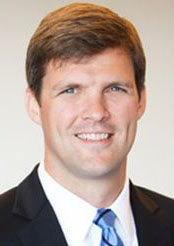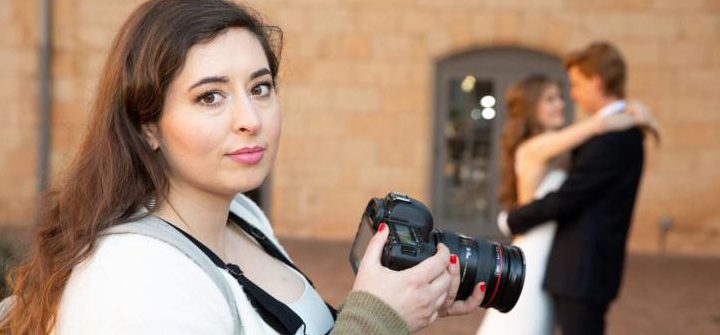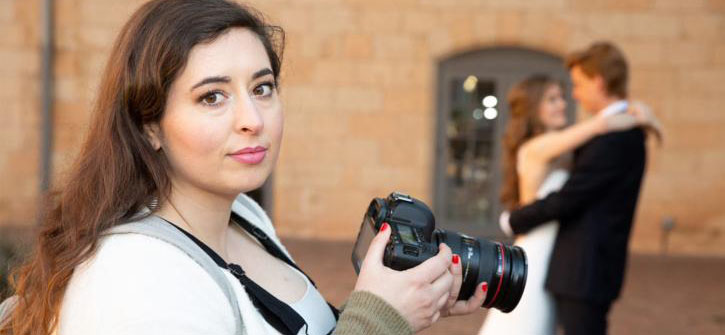First there was the wedding cake baker in Colorado who refused to serve a same-sex couple and took his case all the way to the U.S. Supreme Court. Then there was the wedding website designer in Colorado who refused to serve same-sex couples and now has a case pending before the Supreme Court. And now, there’s a wedding photographer in Louisville who has won the first round of her case for refusing to serve same-sex couples.
While same-sex marriage remains legal across America — due to a separate Supreme Court ruling now being challenged by conservative justices — there are limits to who is willing to serve those same-sex couples with standard wedding services. And in these cases, the question typically turns on a definition of free speech.
Is baking a custom cake for a wedding a matter of protected speech? Is designing a website for a wedding a matter of protected speech? Is photographing a wedding a matter of protected speech?
A federal judge in Louisville, Ky., is the latest to weigh in on this wedding industry question, and his answer is that wedding photography is a creative service that is a form of free speech and cannot be coerced against religious principle.

Benjamin Beaton
That Aug. 30 ruling by U.S. District Court Judge Benjamin Beaton was good news for wedding photographer Chelsey Nelson, who says her Christian beliefs prevent her from participating in same-sex marriage, which she believes is sinful. It was bad news for the Louisville-Jefferson County government’s Fairness Ordinance, which has stood since 1999.
A common thread
Here’s where the Kentucky case and the two Colorado cases come together: All three cases were filed in opposition to laws that prevent public businesses from refusing service on the basis of race, gender or sexual orientation.
“The courts are divided over whether public businesses may post ‘no gays served here’ notices on their websites.”
While no modern court has allowed a restaurant to post a “whites only” sign as was customary in the Jim Crow South, the courts are divided over whether public businesses may post “no gays served here” notices on their websites.
That is exactly the question at play in the Louisville case. Nelson never has been asked to photograph a same-sex wedding, but she wants to make it clear she never would. According to her court filing, the Louisville/Jefferson County Fairness Ordinance opens her to prosecution just for posting such a notice.
In answer to her request for relief from this ordinance, Judge Beaton declared:
- “The city and those acting on its behalf may not invoke Metro Ordinance 92.05(A) to compel Nelson to provide her wedding photography services for same-sex wedding ceremonies or otherwise express messages inconsistent with Nelson’s beliefs.”
- “The city and those acting on its behalf may not invoke Metro Ordinance 92.05(B) to prohibit Nelson from posting statements on her website or making similar statements on her studio’s website, on her studio’s social-media sites, or to prospective clients.”
- “The Accommodations and Publication Provisions of the Fairness Ordinance 92.05, violate Nelson’s freedom of religion” under the Kentucky Religious Freedom Restoration Act.
Officials with the combined city/county government have indicated they are likely to appeal this ruling, which could take yet another wedding case to the U.S. Supreme Court. Except that Beaton said he hopes the court’s upcoming ruling on the wedding website designer might answer these questions once and for all.
Still unresolved in the highest court
That pending case, 303 Creative LLC v. Elenis, is on docket this term but a date for oral arguments has not been set. That case “mirrors the dispute here,” Beaton wrote. “Chelsey Nelson is a wedding photographer opposed to same-sex marriage on moral and religious grounds. She sued the City of Louisville under the First Amendment and Kentucky law to shield herself from enforcement of Louisville’s ‘Fairness Ordinance,’ a public-accommodations law that guarantees equal access to goods and services regardless of sexual orientation. Under that law Nelson must photograph same-sex weddings if she photographs opposite-sex ceremonies. And she may not express her unwillingness to do so or otherwise make same-sex couples feel ‘unwelcome.’”
Beaton added: “Courts across the country have addressed whether bakers, florists, website designers and other creative professionals must either provide their services for weddings that violate their beliefs or else abstain entirely from the wedding business. And those courts’ disagreement on whether this amounts to prohibited discrimination or protected dissent is what the U.S. Supreme Court has set out to resolve during its upcoming term.”
The court did not resolve the matter in the first case, known as Masterpiece Cakeshop v. Colorado Civil Rights Commission. To the consternation of both sides, the court ruled only on a narrow part of the case, not on the larger religious liberty issue.
“This split is one result of the remarkable and rapid change in the legal treatment of same-sex relationships in this country.”
Yet questions about service providers and same-sex weddings are pressing down on the courts, Beaton said. “This split is one result of the remarkable and rapid change in the legal treatment of same-sex relationships in this country. In 2015 the Supreme Court interpreted the Constitution to require states to authorize same-sex marriages in Obergefell v. Hodges. Even before that decision, but especially since, the nation’s courts and lawmakers have struggled to reconcile the new legal orthodoxy with the dissenting views and voices of those whose religious faith leads them to maintain what was until recently the status quo.”
In Masterpiece Cakeshop, he said, “the Supreme Court approached the question, but didn’t make it all the way down the aisle. It ruled narrowly that Colorado’s public-accommodations law couldn’t force a particular baker to supply a custom wedding cake for a same-sex ceremony because public officials investigating that baker expressed hostility toward his position and faith. But the court didn’t resolve the underlying constitutional question regarding the tension between the First Amendment and Colorado’s public-accommodations law.”
What remains is “a real conflict between nondiscrimination and speech that cannot be wished away: compelling access for all necessarily clashes with the liberty of some,” Beaton wrote.
What’s now and what’s next?
For now, in Louisville, at least one wedding photographer is able — under court order — to post a “no gays served here” notice on her website. Whether other wedding photographers, wedding cake bakers and wedding website designers will be able to do the same remains to be seen.
And if the Supreme Court does grant free-speech exemptions to some business owners because of their theologically conservative beliefs, the next question may be who is a “creative” provider exercising free speech, and who is just a service provider with no concern for protected speech.
In other words, are hotel managers, event venue owners, banquet chefs, limousine drivers, players in wedding bands or even printers of wedding invitations engaged in protected speech that would allow them to refuse service to a same-sex couple but not to a mixed-race couple?
Herein lies one of the most controversial questions around LGBTQ inclusion: Is sexual orientation comparable to race?
Conservative evangelicals in particular argue strongly that the two are unrelated. In their view, no one chooses to be born Black or white or Asian or Native American, but they believe sexual orientation is a choice — and a sinful one at that. Others, including a current majority of Americans, believe sexual orientation is not a choice and therefore is like race. They believe just as a person cannot stop being white, gay people cannot stop being gay; therefore, sexual orientation should be protected against discrimination just as race.
Two key players
As with most of the culture war issues pulsating through America’s legal system today, the Kentucky photographer case is spearheaded by a conservative nonprofit law firm. In this case, it is Alliance Defending Freedom that is representing both Lorie Smith, the Colorado website designer, and Chelsey Nelson, the Kentucky photographer.
ADF, which is based in Scottsdale, Ariz., and First Liberty Counsel, which is based in Plano, Texas, are the two largest players representing a conservative evangelical view of religious liberty in the courts today.
Court placement also matters when these cases are filed. Decisions often bounce between courts at various levels with conflicting opinions based on how individual judges interpret the law. And without clear direction from the Supreme Court, the confusion remains.
In the Kentucky case, Judge Beaton’s resume portrays a complex character for today’s political climate. He is a graduate of Centre College, a well-known boutique liberal arts college in Kentucky, and earned a law degree at Columbia Law School, one of the most prestigious law schools in the nation.
Beaton later served as a legal fellow in Uganda with International Justice Mission — a social justice-oriented nonprofit — alongside his wife, Andrea Zawacki Beaton, who is a pediatric cardiologist.
After law school, he served as a law clerk to Supreme Court Justice Ruth Bader Ginsburg, a well-known liberal on the court whose death gave then-President Donald Trump the opportunity to fully tilt the court in a conservative direction by replacing her with Amy Coney Barrett.
However, Beaton also is a member of the Federalist Society, the conservative group that promotes an “originalist” view of constitutional law and has shaped the current Supreme Court more than any other outside group. And Beaton was nominated to the federal bench in August 2020 by Trump.
Related articles:
Does landmark religious freedom legislation need a fix or is it fine as is?
Most Americans oppose high court’s decimation of church-state separation, surveys show
Supreme Court to hear case of wedding website designer who won’t serve same-sex couples


